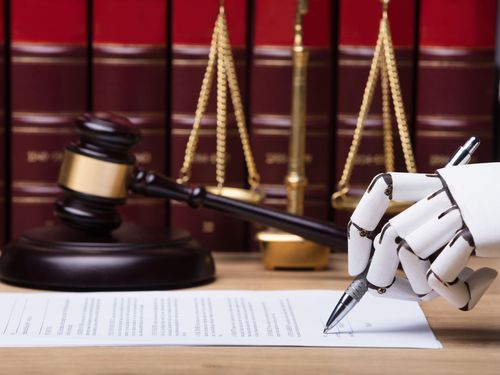In a rapidly evolving technological landscape, the need to regulate artificial intelligence (AI) has become paramount. Ukraine, recognizing the potential risks associated with AI, has taken a proactive step by unveiling its regulatory roadmap on October 7 through the Ministry of Digital Transformation.
This roadmap aims to prepare local businesses for the adoption of AI regulations akin to the European Union’s AI Act while educating citizens on safeguarding themselves from AI-related risk.
Understanding the AI Risks
Before diving into Ukraine's regulatory measures, it's important to grasp the risks posed by AI. These risks include:
- Lack of AI Transparency: AI systems often operate in a black box, making it challenging to understand their decision-making processes. This opacity can lead to mistrust and unintended consequences.
- Job Losses Due to AI Automation: As AI-powered automation advances, there is concern about potential job displacement in various sectors, necessitating measures to address workforce transitions.
- Social Manipulation Through AI Algorithms: AI can be used to manipulate public opinion, spread misinformation, and influence elections, posing a threat to democratic processes.
- Social Surveillance with AI Technology: Surveillance systems equipped with AI can infringe on individuals' privacy and civil liberties, leading to concerns about mass surveillance
- Lack of Data Privacy Using AI Tools: The collection and utilization of personal data by AI systems can jeopardize individuals' privacy, requiring robust data protection measures.
The EU AI Act as a Model
In June, the European Parliament passed the EU AI Act, which serves as a model for Ukraine's regulatory roadmap. The EU AI Act prohibits certain AI services and products while imposing limitations on others.

It explicitly bans biometric surveillance, social scoring systems, predictive policing, emotion recognition, and untargeted facial recognition systems. Generative AI models, like OpenAI's ChatGPT and Google's Bard, can continue to operate under the condition that their outputs are clearly labeled as AI-generated.
Ukraine's Regulatory Roadmap
Ukraine's regulatory roadmap takes a bottom-up approach, advocating a gradual transition towards more comprehensive regulations. It equips businesses with the tools and knowledge needed to prepare for forthcoming laws.
The preliminary period of two to three years allows companies to adapt and implement ethical AI practices voluntarily, thus embracing effective AI risk management.
Deputy Minister of Digital Transformation Oleksandr Borniakov highlights some key elements of the approach: "We plan to create a culture of business self-regulation by encouraging companies to sign voluntary codes of conduct, attesting to their ethical use of AI. Another tool is a White Paper that will familiarize businesses with the approach, timing, and stages of regulatory implementation."
Benefits of AI Regulation
Regulating AI brings several potential benefits to the table:
-
Protecting Individuals and Society from Harm:
Regulations can prevent AI systems from being used to discriminate against specific groups or to propagate misinformation, thereby safeguarding individuals and society at large.
-
Ensuring Transparency and Accountability:
AI systems' complexity often results in a lack of transparency. Regulations can enhance and speed up accountability by mandating the disclosure of information about how AI systems function, further enhancing AI risk management.
Ukraine's proactive stance on AI regulation underscores the importance of addressing the associated risks and promoting effective management.
Following the EU's lead and adopting a gradual approach, Ukraine looks forward to striking a balance between fostering AI innovation and protecting its citizens. As AI continues to shape our future, these regulations aim to ensure that it does so responsibly and ethically, benefitting both businesses and society as a whole.




